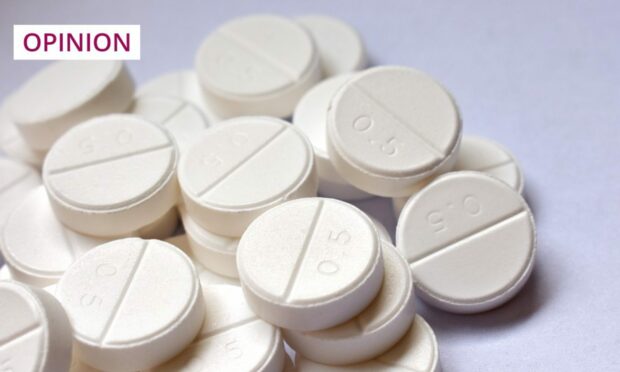Keeping ourselves healthy by making small changes to the way we live can help the NHS save money while also improving our quality of life, writes Dr Emma Windle.
It was recently reported that NHS Grampian prescribed £94,000 worth of paracetamol in June 2022 – a huge amount of money, particularly for a health service that is struggling and chronically underfunded.
There were also details on the top 10 most common prescriptions by health board area – they included omeprazole, used for heartburn, indigestion and reflux; aspirin, used to thin the blood in patients with heart disease; blood pressure medication; and cholesterol-lowering medication.
So, you might ask, why is so much paracetamol prescribed locally, especially considering it is available over the counter relatively cheaply? In short, some patients need to use medication more frequently than the small supply available over the counter (32 tablets is four days’ worth), or struggle with mobility to get to the chemist.

As GPs, we try our best to prescribe only when appropriate, and consider other options with patients. But, as a society, do we also have a responsibility to the NHS?
The NHS is free at the point of care, but every appointment, prescription and test does cost. It’s easy to take our health service for granted, and highlighting the price of these prescriptions shows just a glimpse of the costs involved. Each year in Scotland, the NHS costs £14.7 billion, or £14,800 per person – a figure that the National Audit Office has called unsustainable.
What can we all do to try and save our NHS money and help its long-term sustainability?
It’s less about medication, more about how we live
Many of the ailments treated with medication on NHS Grampian’s most-prescribed list are not only preventable, but also treatable with changes in our lifestyle. Heartburn, heart disease, high blood pressure and high cholesterol can all be influenced by changing our diet, being more active can help with pain management, and ensuring a healthy BMI will help all of these.
Do we need to look less at medication and more at how we live as a society?
Healthy food can be cheaper than pre-made, processed meals, and is better for us. We are more sedentary now than ever before, with many of us sitting for long periods of the day for work.
Walking briskly for 10 minutes a day reduces your risk of early death by 15%
Walking briskly for 10 minutes a day reduces your risk of early death by 15%, helps focus, is good for your circulation, lowers blood sugar (reducing your risk of diabetes), and helps you sleep better – not bad side effects compared to those from the list of drugs commonly prescribed.
Being aware of the cost to the NHS of these medications presents an opportunity to rethink our lifestyles and try to work together to reduce prescribing, save the health service money, and help make it more sustainable.
Emma Windle is a local GP and one of the directors of Aberdeen Health and Wellbeing Festival


Conversation